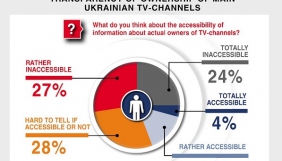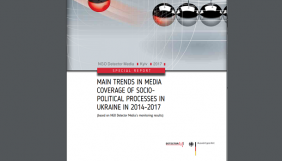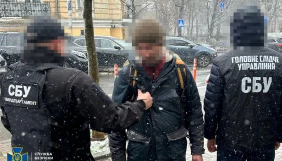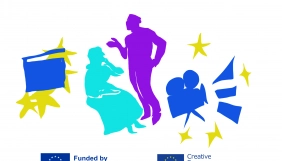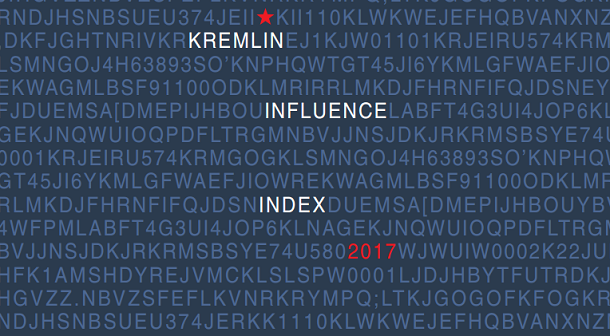
Kremlin Influence Index
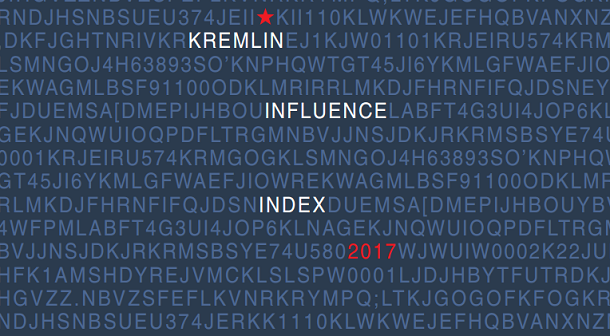

The KII is to measure the capacity of the RF’s Government to have impact on the information space processes in other countries. The KII is a figure rated for each country separately. The higher the figure, the more opportunities the Kremlin has to influence the information processes in the country.
The KII is determined, on the one hand, by its capacity and resources and, on the other hand, by the response of democratic countries. So the KII has two blocks: the influence and the response to this influence. The influence and response were measured in three dimensions: political, media, civil society (including the church).
A questionnaire of 33 questions was elaborated for measurements. The KII was calculated based on the expert survey (see list below).
The full report you can download here.
Key findings:
The amplest opportunities for the Kremlin influence were identified in Hungary (KII is 61), the lowest in the Czech Republic (48). Kremlin enjoys strong position due to the pro-Russian rhetoric government; and the Hungarian society did not offer efficient countermeasures. The Czech Republic is demonstrating strong political resistance (despite the pro-Russian president) to and active civil society action against the Kremlin’s information aggression.
In Georgia, after the war of 2008, the Kremlin information influence opportunities are growing stronger: mainly by means of political parties, the Orthodox Church and Russia media. The government keeps stalling to take information security actions. Though the civil society is rather active in its resistance to the Kremlin information influence, the KII in Georgia is 54.
In all countries, the media environment is favorable for the Kremlin’s influence. The oligarch ownership of media, decline of confidence in the central media outlets create good opportunities for the Kremlin. Usually, media outlets are very slow to join the anti-propaganda action, they do not teach people to see manipulations and propaganda, even worse, they may spread fakes, Kremlin myths etc.
Civil society turns to be the most resistant to the Russian influence. Though the Kremlin is doing its best to use the puppet civil society for its propaganda, these actions are efficient in Ukraine only (with the Orthodox Church and military groups controlled by Moscow). In other countries, the Kremlin hasn’t found successful influence means in this dimension, and this is the civil society that often becomes a guide of the Russian information aggression resistance.
Ukraine is a leader in Kremlin propaganda counteraction. While other countries are searching for ways to restrict the Kremlin’s information capacities, Ukraine has already introduced legislation, and the NGOs are region leaders in propaganda studying and informing citizens about its harm. But the magnitude of Russian pressure and the Kremlin’s free reign in the occupied areas make the Ukraine’s KII almost equal to the Czech (49).
The research has been carried out with the financial support of the Black Sea Trust within the project implemented by the NGO Detector Media in partnership with European Values (Czech Republic), Media Development Foundation (Georgia), and Political Capital (Hungary).





